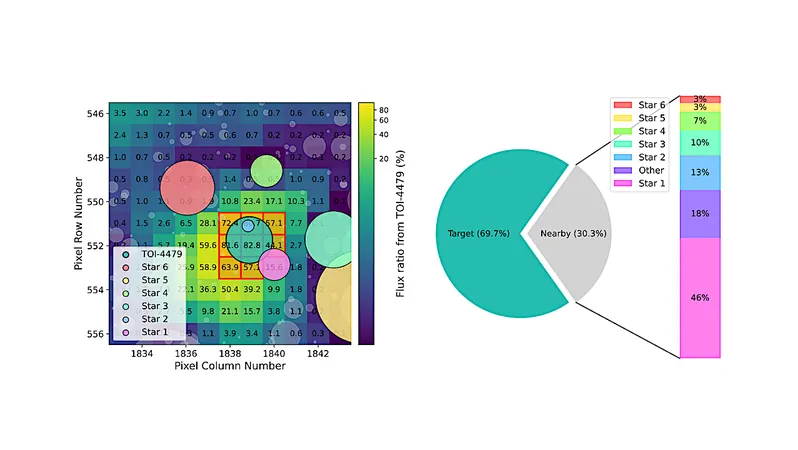
Unlocking the Secrets of Exoplanets: Insights from the PLATO Mission
2025-06-29
Author: Li
Revolutionizing Our Understanding of Planetary Systems
In an exciting leap forward for astronomy, new research has harnessed data from the Kepler/K2 and TESS missions, setting the stage for the groundbreaking PLATO mission. This ambitious study aims to unravel the mysteries of how planets form and evolve through extensive observational efforts.
Discoveries That Could Change Everything
The findings are nothing short of remarkable: four new planets have been statistically validated, with two additional planets confirmed and characterized. Additionally, 14 new candidates have been identified, while the properties of 25 previously known planets have been revised. Among these, TOI-244 b stands out as a low-density super-Earth, raising intriguing questions about its composition and formation.
Magnetic Interactions Unveiled
The research also confirms the existence of the transiting super-Neptune TOI-5005 b, revealing photometric variability in its host star that correlates with the planet’s orbital period. This suggests fascinating magnetic star-planet interactions that could be reshaping our understanding of planetary dynamics. Similar phenomena have been observed in the eccentric HD 118203 system, where signals fluctuate in sync with the planets, showcasing the complex relationships at play.
Insights into Exoplanet Populations
On a broader scale, the research presents compelling trends: low-density super-Earths (LDSEs) are predominantly found around stars with below-average metallic content, and the least dense among them receive lower insolation. Notably, there's a surge in Neptunian planets orbiting within specific periods, dubbed the Neptunian ‘ridge,’ suggesting a shared evolutionary trajectory with hot Jupiters.
A Step Closer to Understanding Planet Formation
These findings indicate that the largest proportion of volatile elements in these unique planets may be directly influenced by their star's irradiation, shedding light on the complex forces at work in planetary system evolution. By addressing these mysteries, we are taking significant strides toward completing the broader picture of how planetary systems develop over time.
This groundbreaking research by Amadeo Castro-González not only enhances our understanding of specific exoplanets but also opens the door to future explorations that could ultimately redefine our place in the cosmos.



 Brasil (PT)
Brasil (PT)
 Canada (EN)
Canada (EN)
 Chile (ES)
Chile (ES)
 Česko (CS)
Česko (CS)
 대한민국 (KO)
대한민국 (KO)
 España (ES)
España (ES)
 France (FR)
France (FR)
 Hong Kong (EN)
Hong Kong (EN)
 Italia (IT)
Italia (IT)
 日本 (JA)
日本 (JA)
 Magyarország (HU)
Magyarország (HU)
 Norge (NO)
Norge (NO)
 Polska (PL)
Polska (PL)
 Schweiz (DE)
Schweiz (DE)
 Singapore (EN)
Singapore (EN)
 Sverige (SV)
Sverige (SV)
 Suomi (FI)
Suomi (FI)
 Türkiye (TR)
Türkiye (TR)
 الإمارات العربية المتحدة (AR)
الإمارات العربية المتحدة (AR)